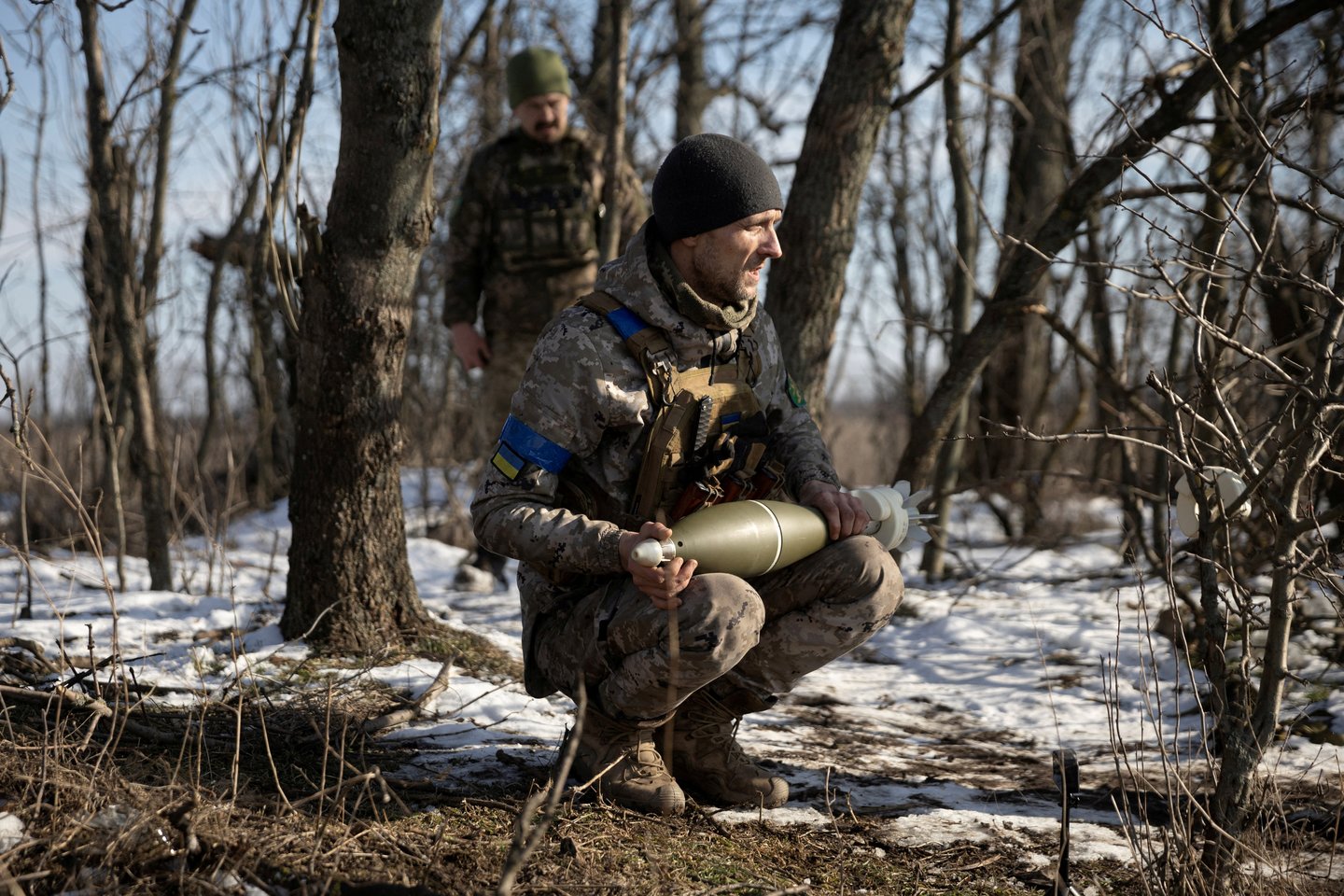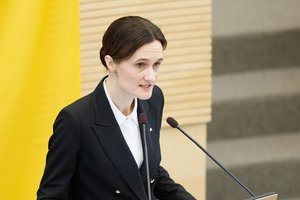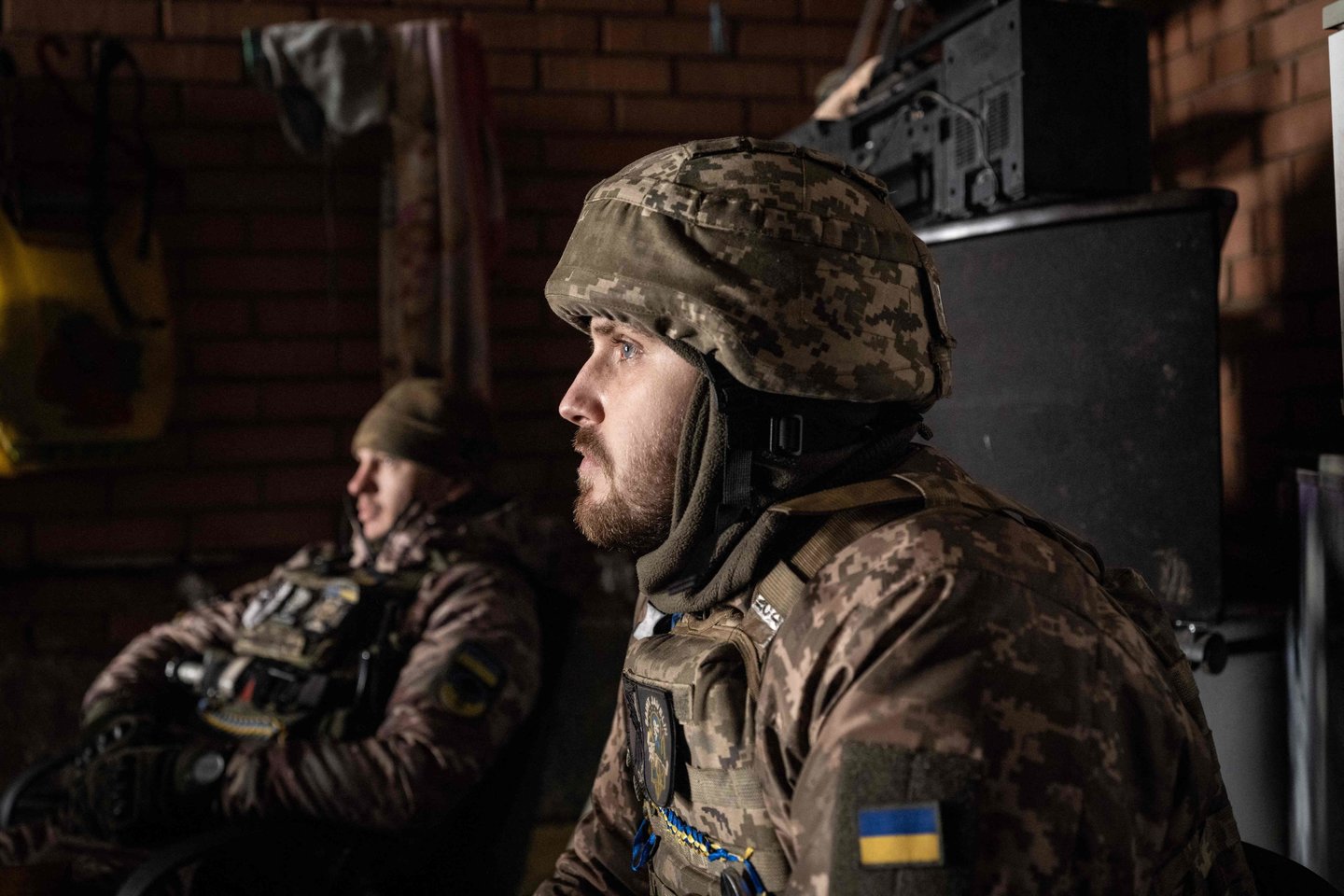The beginning of the mission is marked by the decision of its founder and ideological leader, Sigitas Maliauskas, who lives in Kaunas, to go to help the Ukrainians fight the invaders in the second week of the war. After hearing the invitation from Ukrainian President Volodymyr Zelensky to come to the warring country, the man with a lot of military experience was going to sign up for the Foreign Legion in Ukraine.
However, after learning about his experience in the ranks of the Lithuanian Armed Forces and in missions in Bosnia and Herzegovina, Iraq and Afghanistan, the Ukrainian military commanders immediately offered Maliauskas to organise training for future soldiers.
A group of instructors from Lithuania, joined by former frontline and experienced military personnel from other countries, has already trained over 8,000 people in Ukraine, most of whom have no military experience.
The men are also transporting the cargo they have collected in Kaunas to Ukraine, which is vital for the Ukrainian soldiers fighting at the front - food, fuel, clothing and essential military equipment.
What have you been transporting to Ukraine lately, and how do you buy it? - "Laikinoji sostinė" asked S. Maliauskas, the founder of the mission "Gyvačių sala".
We ship to Ukraine exactly what the soldiers on the frontline need. At the moment, we have a warehouse in Kaunas that is stocked with various items. Some of them are bought by our supporters - for example, three companies came together and bought lubricant tanks. Some people donate things, such as new military uniforms, that they may have had in the closet.
Of course, a lot of the things we need we have to buy ourselves, so we are very grateful to everyone who donates to our mission.
Susiję straipsniai
But your main mission is to train soldiers, right?
There were two of us going to Ukraine, but when the leadership of the brigade I joined found out that I had 21 years of experience in various missions and that I was a weapons specialist, they immediately offered me the opportunity to train a whole new brigade of 480 people. And that's how our activities started.
Since the Ukrainians did not even know how to pronounce "Iki pergalės", we called ourselves simply "Gyvačių sala". I think that the defenders of that island showed great courage when they 'sent' a Russian warship armed with missiles. This is inspiring for our team.
We often hear that Ukrainians learn warfare quickly and easily. Is this true?
Yes, they are very motivated. But moreover, everyone understands that this is a matter of life and death for them. When we met the brigade commander again after the first exercise and the following battles, he said: the people who have reassembled here alive, I have seen, have been active during your training. You see, those who did not learn how to deal with war are no longer with us - they have been killed, they have been wounded.
We must realise that the Ukrainian army had over 100 000 trained people and that they had to take half a million more people to war without training. The scale of the need for training is enormous.
We started out training with the weapons we had, and now we have to train with the Western weapons we are familiar with. It is an ongoing process, and we go on missions every month.
Can you compare the war in Ukraine with other missions you have been on - Bosnia and Herzegovina in 1999, Iraq in 2003, and Afghanistan in 2010?
The conflicts themselves and the situations are very different. What is currently happening in Ukraine is not some kind of insurgency or fighting between a few hostile groups but a real war involving regular troops: artillery, mortars, tanks, and aviation.
In fact, I have seen a lot of things, but I did not believe that the Russians would attack Ukraine. I was convinced that the army of several hundred thousand troops massed on the border was just a threat and that they would have the sense not to do so.
You are a soldier by vocation. Could you live without war?
There is evidence that the longest pause without military conflict in the world is one month. I am a Western soldier, and my thinking is not about war but about defence. How to defend my country, my city, my home. That is different from a Russian who goes to kill another soldier. While I appreciate that war shows the incompetence of diplomats to reach an agreement, it is not the case with Russia because it is impossible to reach an agreement with Vladimir Putin, and if we do not fight back, one day, he will come to our door.
I am making an effort to train as many soldiers as possible in Ukraine so that I do not have to defend myself here in Lithuania.
You currently live in Kaunas. You have written on social media that the current mayor should not be condemned because of his businesses in Russia. Don't you think this is important?
Kaunas is a very great city, strategically located in a very important place in the country, and it is not for nothing that it was chosen to be the Provisional Capital. In the event of war, the city would be strategically important, with all the country's main roads passing through it.
When I wrote my opinion on the Vičiūnai Group's businesses, I meant that we must be equally critical of everyone. We are now condemning some very publicly and very loudly, and we are turning a blind eye to the same activities of others.
If we are talking about the Mayor of Kaunas not stopping the activities of the companies that he owns in Russia, let us also talk about the 500 companies that still have businesses in Belarus, which is directly involved in Russia's war with Ukraine. In Russia itself, as many as 200 companies with Lithuanian Capital are still carrying out various activities. Is this normal?
Is it fair to say that there are still those who think that it is possible to have some kind of relationship with Russia and not suffer because of it?
That depends very much on what we think about it. If there is a common view that Russia is a terrorist state and that relations with it lead nowhere, then there will be a change.
I find it difficult to understand how one can deal with a country whose soldier has stolen a dog's way out of the battlefield. What kind of mentality do you have to have that you cannot even make your own dog's kennel?



